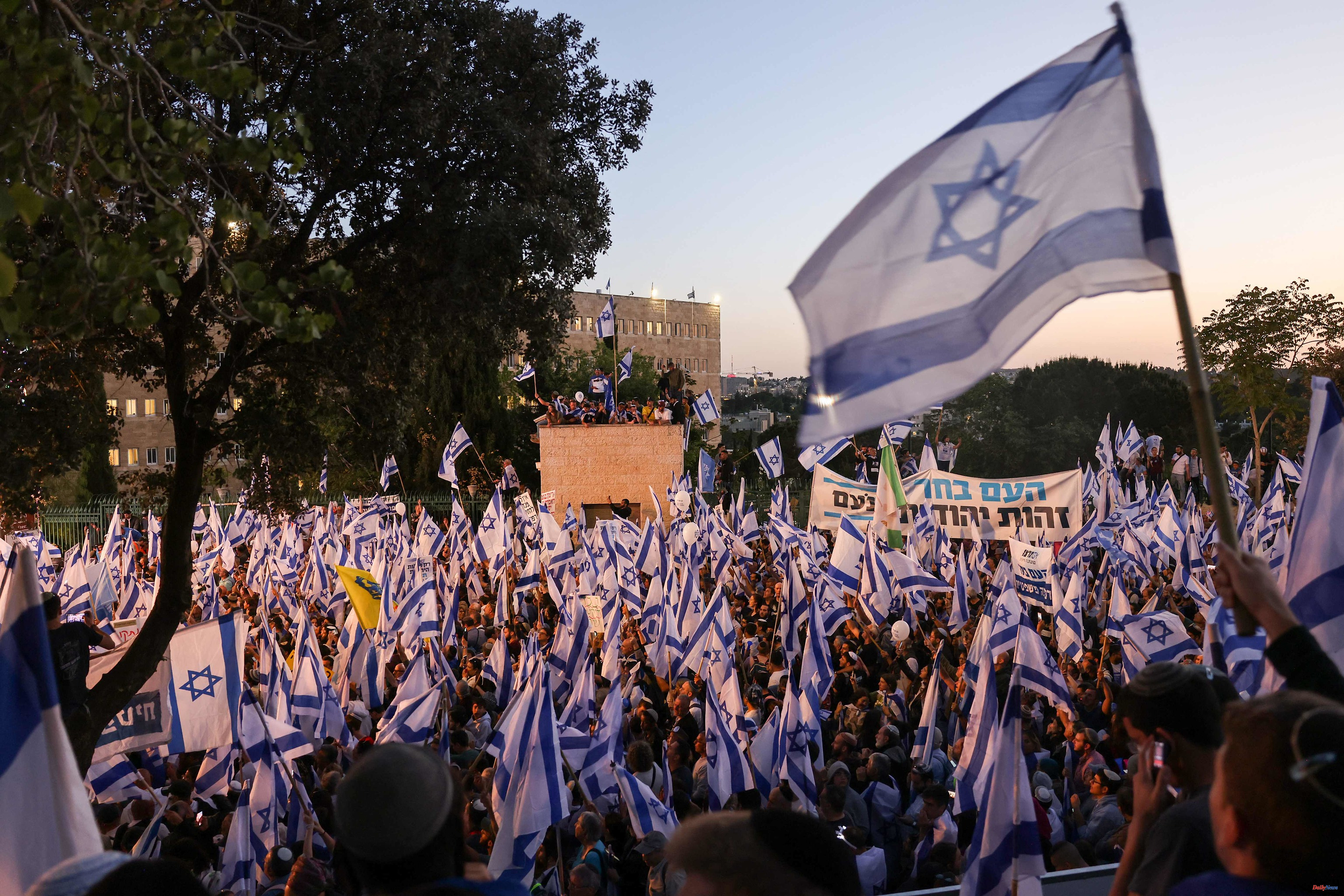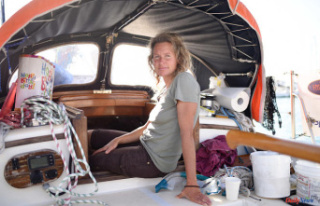If the announcement of the plan to make profound changes in the relationship between the judiciary and the rest of the powers in Israel unleashed massive protest demonstrations that this Saturday will reach their seventeenth consecutive week, its suspension has mobilized the right.
More than 100,000 people - identified with the bloc of right-wing and religious parties that make up the coalition - gathered this Thursday afternoon around the Knesset in Jerusalem to demand the approval of the judicial reform. That is, to ask the prime minister and leader of the Likud, Benjamin Netanyahu, to remove the brake that he himself put at the end of March as a result of the massive protests (including by reservists) throughout the country, the criticism from the US and the damage tangible and potential in the economy. Since then, representatives of the Government and the opposition have been in dialogue at the presidential headquarters to reach an agreed legislation.
Among the protesters this Thursday night, numerous deputies and ministers of the coalition could be seen and heard, beginning with the great promoter of the judicial project, the head of Justice, Yariv Levin. "All together we want to send a message to those who fear the results of the reform. We do not want control of the judiciary but rather that the judiciary belongs to everyone, liberals and conservatives. A court that supports the soldiers and not the relatives terrorists", he stated in a speech in which he reiterated his harsh criticism of the Supreme Court. "There is no bigger lie than saying that this reform will cause a dictatorship," he said to loud applause. Netanyahu, who did not attend the event, declared on Twitter "deeply moved by the enormous support from the national camp."
Several parties that are members of the executive participated in financing the arrival of protesters so that, after all, they publicly ask them to approve the laws that they suspended. Like the one that grants the Government a majority in the appointment of judges or the one that considerably reduces the ability of the Supreme Court to overthrow laws of Parliament. The objective of the call is to show that the Israeli street does not only belong to the detractors of Levin's plan. "Our mistake at the beginning was not demonstrating like we do now and believing that the Knesset was enough," says Sara, a Likud voter, to EL MUNDO.
The demonstration had a double message. On the one hand, an expression of great discomfort at what they consider to be "the brake on the reform due to the elites and the Supreme Court annulling the will expressed at the polls." One of the most repeated shouts has been "64!" in allusion to the number of its deputies that are the majority in a Parliament of 120 seats. The faces of the president of the Supreme Court and the legal adviser to the Government were displayed on a poster on the ground, being stepped on by protesters.
On the other hand, a "friendly" notice to Netanyahu so that he "does not give in" to internal and external pressure. "If the government conveyed the feeling that the reform would be completed, surely this protest would not have taken place," admits Matan Peleg, a well-known right-wing activist and supporter of the prime minister. According to him, "precisely to strengthen democracy and end the dictatorship of the Supreme Court, changes are vital." An opinion radically opposed to that of the protesters who take to the streets against what they define as a "judicial revolt that aims to end democracy."
In the massive protests against the judicial plan, citizens of the left, right and, above all, the center, also moved by a feeling of struggle for the identity of their country to be Jewish, liberal and secular, without the military exemption of ultra-Orthodox youth participate. and without the presence of far-right ministers like Itamar Ben Gvir. Similarly, the manifestation of the right (Likud) and religious nationalism (represented in Bezalel Smotrish's party) is also driven by the will to prioritize the Jewish identity of the country they want to be more conservative.
But while the former warn that Netanyahu's brake is intended to put an end to the protests, mobilize the right in the streets, divide the opposition and resume the legislative initiative in the Knesset in the coming months, the latter fear that what is being burying is the judicial project as announced by Levin in January. What everyone agrees to point out is that Israel is experiencing dramatic moments with enormous social upheaval and political division.
According to the criteria of The Trust Project












